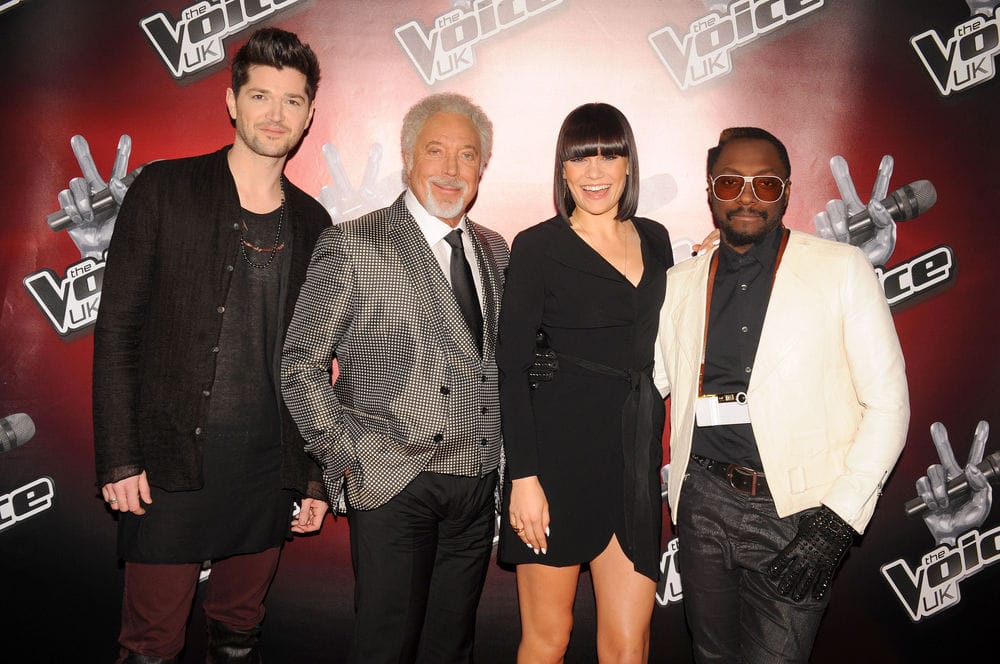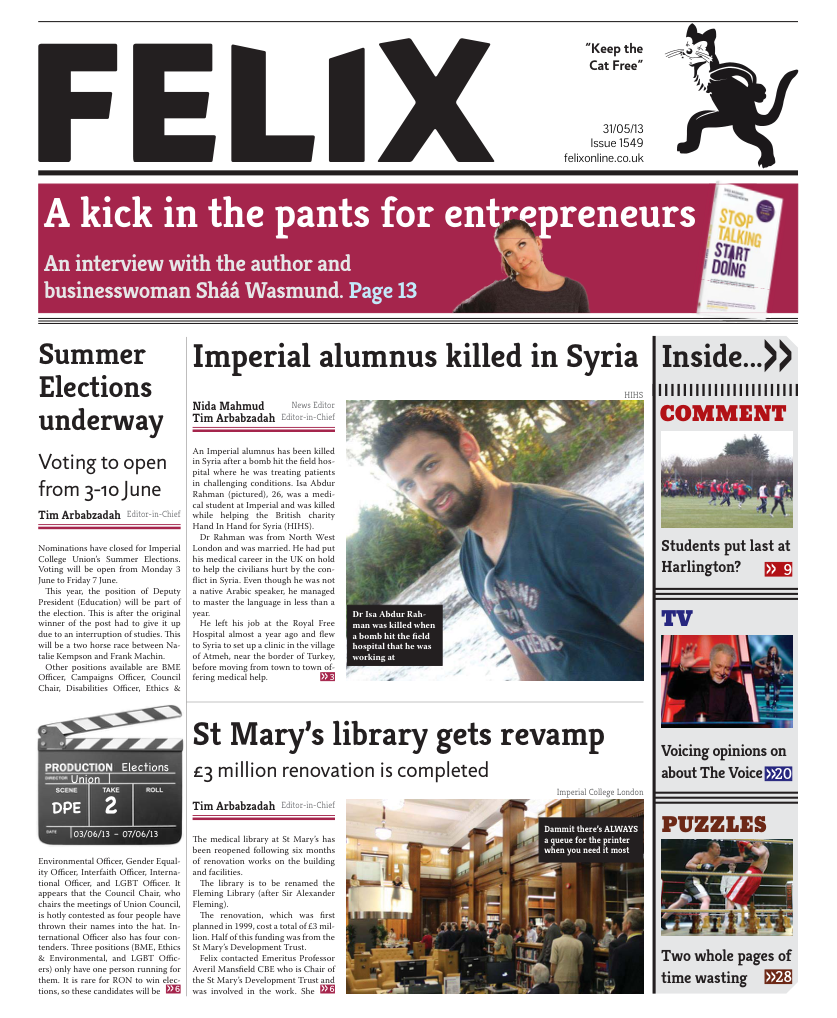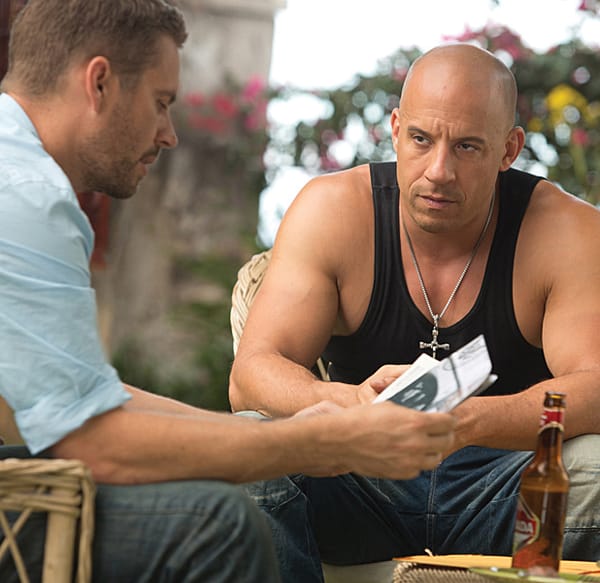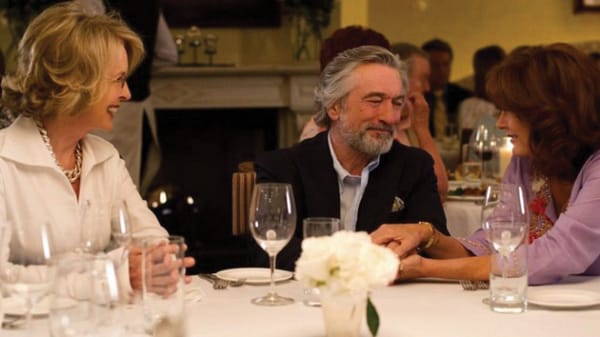Spinning chairs
Stephanie Walton voices her opinions on the BBC’s talent show

Some people really can sing. And I don’t just mean in tune with a token crescendo or diminuendo. I mean with style and true feeling.
The Voice is a TV show which searches for these very people and assesses them on the quality of their voices alone. In the so called “Blind Auditions” the vocal coaches cannot initially see the contestants as their chairs are turned backwards. If they like what they hear and want the singer to join their team they press their buzzer and their chair spins around. This can be exciting and nerve-wracking; if no one spins around the contestant goes home. And if more than one coach spins around a fight for the singer ensues. Unlike The X Factor, in which the best, worst, and most unusual acts are televised, The Voice’s Blind Audition contestants are selected on vocal merit. Whilst the first round of The X Factor can involve laughing at the poorer contestants rather than enjoying the better performances, the contestants in The Voice’s Blind Auditions are of a consistently high standard. After the Blind Auditions, the competition continues with battle rounds between team members and eventually a live sing off before an overall winner is crowned. These later rounds are not as thrilling as the initial Blind Auditions but are nevertheless a fine showcase of vocal expertise. The Voice is a talent show like no other and most certainly deserves your attention.
The Voice started in The Netherlands in 2010 and was such a success that it has now spread to 50 other countries or regions, 8 of which also have children’s competitions. In the UK we are currently mid-way through our second series with our four vocal coaches making excellent television; Danny O’Donoghue is a real charmer, will.i.am provides constant amusement, the gifted Jessie J’s hair styles and nails are extraordinary, and Tom Jones is, well, Tom Jones. If, however, the UK programme irks you for some reason, try The Voice Australia with the beautiful Delta Goodrem, The Voice Holland in which the coaches’ feedback is in mind-boggling Dutch or The Voice Ireland in which the coaches sit on differently styled red chairs and argue a lot.
But before you get stuck in it is my duty to warn you of the possible side effects of this programme. Firstly, revision efforts could be hampered; you can find more than 8 hours of Blind Auditions’ footage on BBC iPlayer. And secondly, there is a risk of suffering from what I like to call, for obvious reasons, the “Wimbledon effect”. You start to believe that you too can sing despite 25 years’ worth of evidence suggesting otherwise. Singing in a crowded lift is still, I repeat still, unacceptable.







